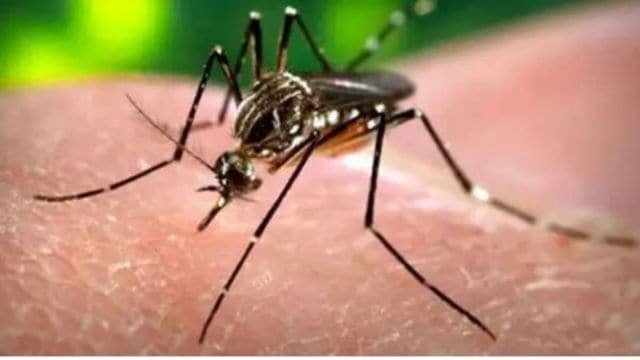Zika virus in Pune: What are symptoms and what should pregnant women watch out for?
Infectious Disease specialist Dr Jatin Ahuja gives a lowdown on the virus and a to-do list.
 Zika virus has once again surfaced in the western part of India with a Pune—Here's all you need to know (File Image)
Zika virus has once again surfaced in the western part of India with a Pune—Here's all you need to know (File Image)The Zika virus has once again surfaced in the western part of India with a Pune-based doctor and his teen daughter testing positive for infection, becoming the first two cases in the city this year. Last year, cases were identified in Mumbai. Mosquitoes are carriers and once they breed rapidly with the rains, the infection risk goes up.
“Zika virus is a mosquito-borne pathogen that belongs to the flavivirus family, which also includes dengue and yellow fever viruses. It primarily spreads through the bite of infected Aedes mosquitoes, particularly Aedes aegypti. Not all mosquitoes carry the Zika virus, and not every person bitten by an infected mosquito will get Zika,” says Dr Jatin Ahuja, Senior Consultant, Infectious Disease, Indraprastha Apollo Hospitals, New Delhi.
What is Zika?
Zika virus is a mosquito-borne virus that was first identified in the Zika Forest of Uganda in 1947. It remained obscure till it gained global attention in 2015 due to a significant outbreak in the Americas, particularly in Brazil. A public health alarm was sounded because the outbreak was associated with an increase in babies born with microcephaly, a serious birth defect where babies are born with abnormally small heads and underdeveloped brains. This proved that pregnant women were at high risk and the virus could affect their offspring.
The mosquitoes that carry Zika virus can live both indoors and outdoors. Though they are mostly day biters, nothing prevents them from biting at night.
What are signs and symptoms?
Most people, about 80 per cent, of those infected with Zika virus do not experience any symptoms. Some develop mild symptoms like fever, rash, joint and muscle pain, headaches and conjunctivitis. These show up within a week of being bitten by an infected mosquito and can last for several days to a week.
How is it transmitted?
Zika virus is transmitted to humans through the bite of infected Aedes mosquitoes, particularly Aedes aegypti and Aedes albopictus. Zika can also spread through sexual contact, blood transfusion and from an infected mother to her baby during pregnancy or childbirth. Zika virus can pass through the placenta to the baby.
Can the virus cause complications?
Infection during pregnancy can lead to birth defects like microcephaly as well as other neurological disorders in the baby, some of which may manifest as the child grows up. So the expecting mother has to be vigilant in her first trimester with ultrasound screenings.
What is the test for Zika?
Go for the RT-PCR test of the blood or urine. This test works best when it is done within a week of getting sick. After that it may not be a very effective test method.
What are preventive measures?
The best way to prevent Zika virus infection is to avoid mosquito bites. This includes using mosquito repellents, wearing long-sleeved clothing, getting rid of stagnant water and staying in air-conditioned or screened-in areas. Pregnant women, or those planning to become pregnant, are often advised to postpone travel to areas with active Zika transmission. Practising safe sex (using condoms) can prevent sexual transmission of the virus. Blood screening and testing reduce the risk of transmission through blood transfusions.
How to treat Zika virus?
It is self-limiting and requires symptomatic treatment. There is no specific antiviral treatment. Take paracetamol for pain relief and fever, take rest and keep yourself hydrated. Pregnant women who may have been exposed to Zika have to be monitored for birth defects.







- 01
- 02
- 03
- 04
- 05
























